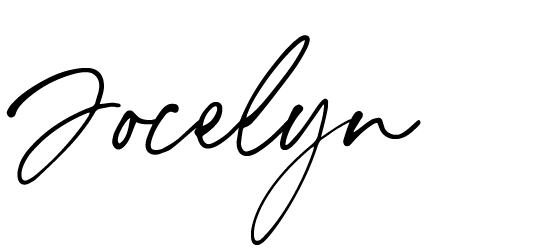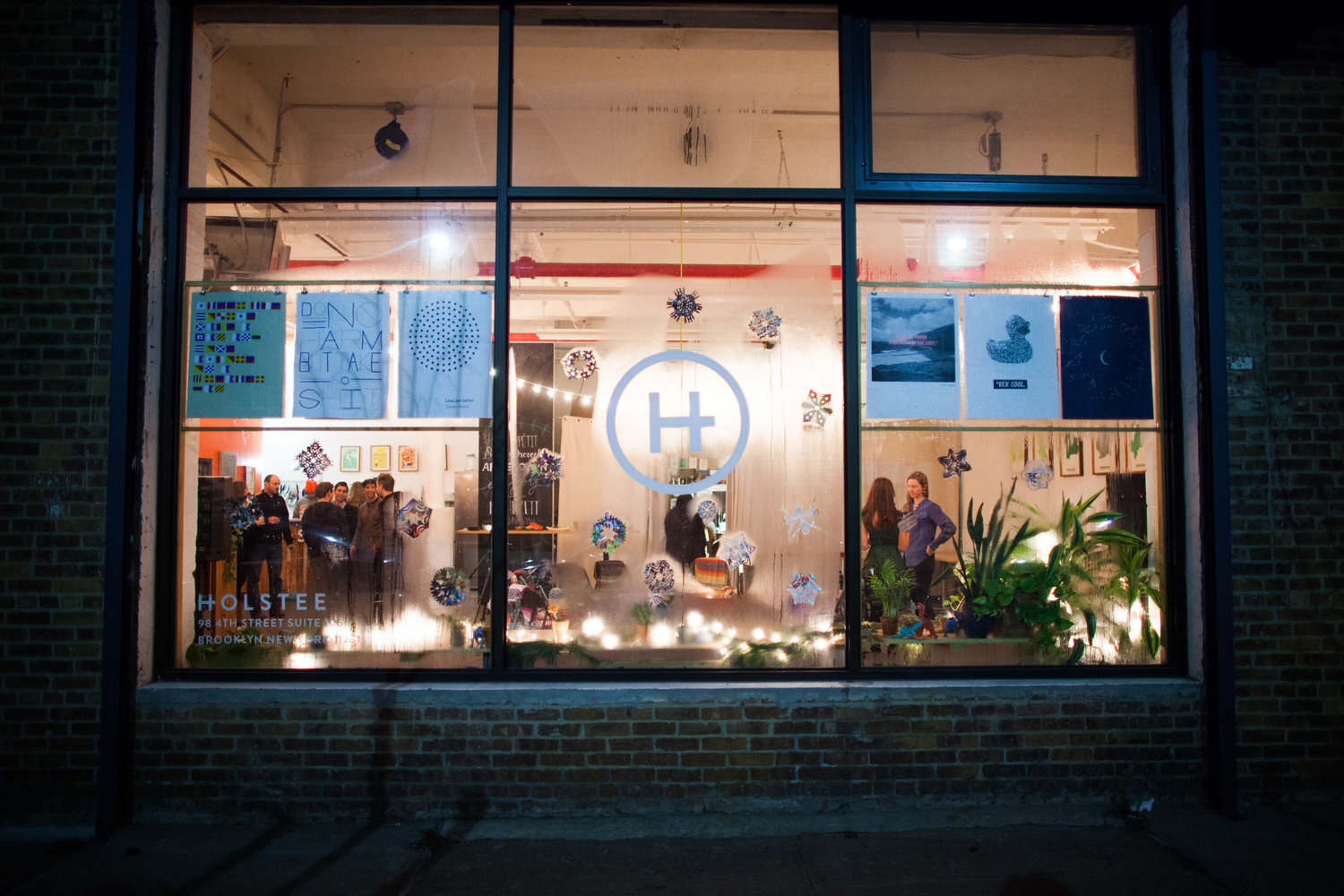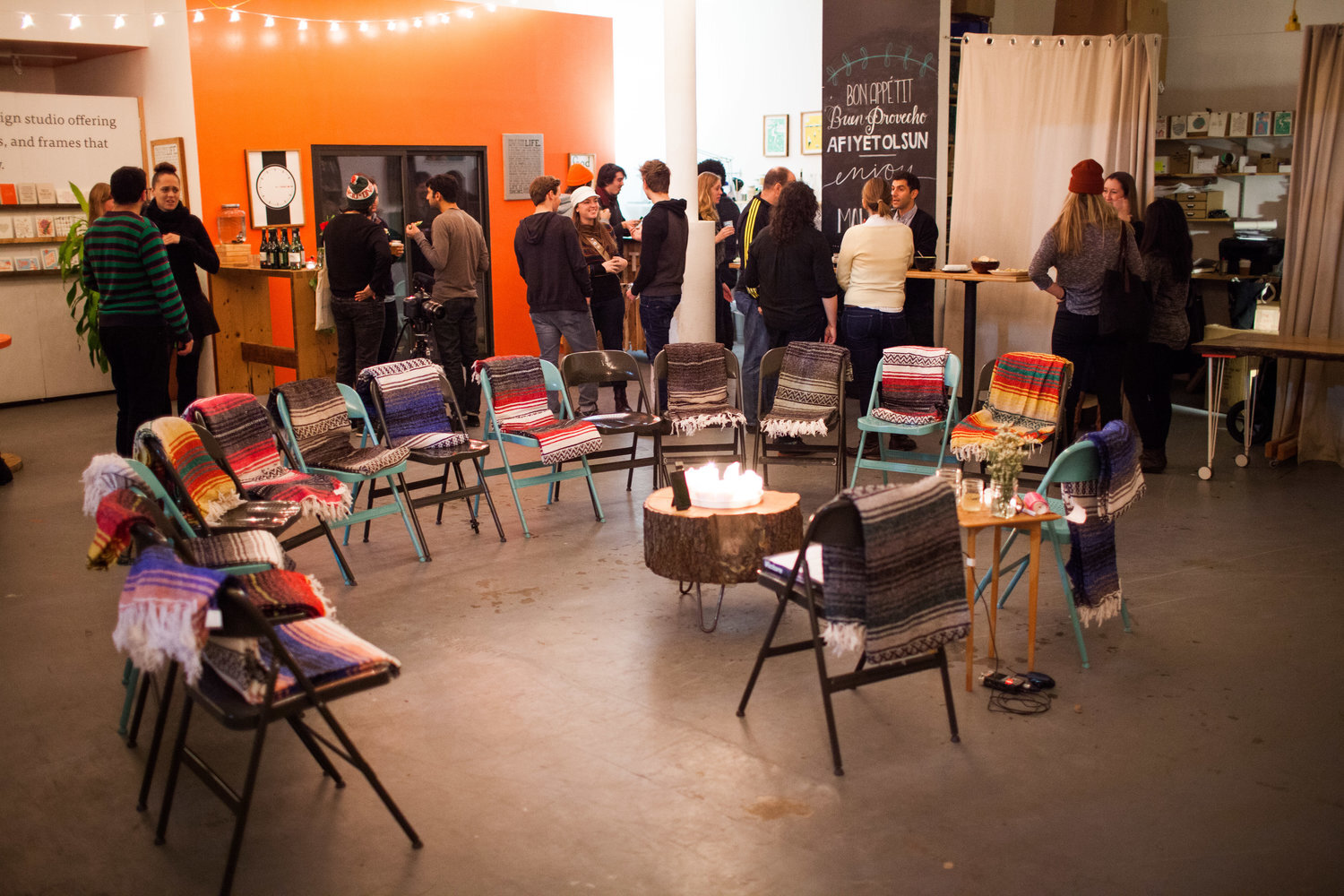Behind (And Beyond) The Mindful Business Of Holstee
Holstee is a mindfulness company that offers tools and inspirational kits that help it's subscribers live a more meaningful and intentional life. All rooting back to defining the meaning of success, cofounders of Holstee Mike and Dave Radparvar (alongside their friend, also cofounder, Fabian Pfortmüller) created what became The Holstee Manifesto. This "definition of success" was then called "The New Just Do It" by the Washington Post which drew millions of viewers. From a t-shirt side project to actionable guides, inspiring art and and curated resources - cofounder Mike Radparvar talks to us about the evolution and effects of Holstee. We also talk behind the scenes curation, personal life changes, and overcoming an existential journey.
Can you start by telling me what inspired the start of Holstee? When and how did the idea spark?
For that we go back to 2008. Me, my brother Dave, and one of my best friends Fabian, decided we wanted to start a company together. We passed around a couple different ideas and Holstee was the concept we chose to try out. It initially started with putting a holster pocket on a t-shirt, which is where we got the name Holstee from. We didn’t know anything about retail or e-commerce. We really just wanted to create something that we felt would bring meaning.
It was important for us to produce locally and be very selective about the materials used, so we ended up with a very nice shirt that was not cheap at all to make. At the time it was very difficult to get an organic cotton fitted shirt. We ended up having to create our own pattern for the shirt. At the same time we decided to define for ourselves (in non-financial terms) what success means. We put our sixteen sentence declaration up on the “About” page of our website. It was our own personal reminder. Over the following years that manifesto ended up being translated into over 14 languages, shared millions of times online and was called the new “Just Do It” by the Washington Post. This resulted into a lot of interest in Holstee. The manifesto drove many people to our website. We found people were curious about this definition of success and much less interested in our t-shirts.
We had people asking us really deep, personal questions about the purpose of life. These were questions way above our experience or knowledge at the time. Still, it got us curious to better understand what it means to live a meaningful life. We spent the next several years learning as much as possible. We turned to people who spent their entire lives doing that, from classic philosophers like Aristotle, Seneca and Nietzsche to modern thinkers of Positive Psychology like Martin Seligman, Carol Dweck and Tal Ben-Shahar. There is so much fascinating ancient wisdom that is finally being scientifically validated.
We've distilled that information into nuggets of actionable insights on living the “good life”. From the get go we wanted to help conscious people live a more meaningful life, and it feels good to finally have that as our focus.
From the get go we wanted to help conscious people live a more meaningful life, and it feels good to finally have that as our focus.
— Mike Radparvar
I feel like a lot of masterplanning goes on behind the making of a letterpress or a kit. Could you tell me a bit about that process?
Each month we focus on one of twelve themes which are drawn from our manifesto, the science of mindfulness and positive psychology. Members receive a letterpress print and an actionable guide for each theme. A good amount of time goes into creating the guides for each theme- nearly everyone on the team touches it at some point during it’s creation phase. The the prints are made by our favorite designers from around the world based off the learnings we share with them. The purpose of the art is to act as an anchor for priming, so we make it available as a 5x7 print to put on your desk, and format it to be a wallpaper on all your devices. We’ve learned that the more often you see something, the likelier you are to think about it, the more you think about it, the likelier you are to practice it and the more you practice it, the more likely it is to become a habit. So the letterpress print goes from designer, to our letterpress printers in LA, to our fulfillment center in Virginia where it gets assembled and then it is shipped to our members worldwide.
Since you work closely with the development and research behind the theme of the month, how do you feel that changed the way you practice mindfulness and living fully? How has owning this mindful business changed your life personally?
Making time for guided reflection (which is essentially what our kits are about) and really examining the true depths of your life, goals and aspirations is so rare. When I take time for a guided reflection, it has a profound impact on me every time I do it.
A couple months ago my brother and I were home with our parents. We were talking about the guides and decided to go through one together. Dave and I had never done that in a group session, let alone with our parents. It led us to a level of conversation that we never had before. My parents learned things about us that they had never known and vice versa. They shared stories that allowed us to see a whole new side of them. There’s something really magical about having this guided conversation. Obviously freeflow conversation is meaningful and wonderful to have, but to have questions that wouldn’t necessarily come up is a really powerful thing to experience with loved ones and people you just want to get to know better.
While making the guides I’ve had some really interesting takeaways that I’ve jotted down overtime. Interestingly, these learnings recur through many different eras and thinkers.
First is this idea that I learned from Viktor Frankl in a book called, “Man’s Search for Meaning.” He’s a holocaust survivor. The book starts when he first walks off a train coming into a concentration camp. He was stripped down and everything was taken from him. Frankl shares the one thing that kept him alive and going was his understanding that anything and everything can be taken from us but our ability to choose how we respond to things. I think that was such a powerful takeaway, especially from someone in his position. This concept leads into another nugget that there’s a difference between pain and suffering. Pain may be inevitable but suffering, the story we tell ourself over and over again, is a choice.
When I take time for a guided reflection, it has a profound impact on me every time I do it.
— Mike Radparvar
Another one is the importance of focusing on what’s important rather than urgent. I think this is particularly relevant today as we live in this notification, instant gratification driven culture. We are expecting everything on demand. It doesn’t matter how unimportant it is. We have this knee jerk reaction to respond to those notifications and that clouds other things that are actually important in our lives. I think one of the greatest skills that anyone can harness today is the ability to separate the things that are actually important from the things that feel urgent. To say no or be able to direct your attention to where it needs to be when you want is so powerful but takes serious practice.
The next one (and this comes straight out of Buddhism) is that we are not our thoughts, we are just the observer of our thoughts. In any given day, it’s easy to have all kinds of crazy thoughts in your mind. When thinking about those thoughts, it is easy to self identify with them and start asking yourself why you are possibly thinking about that. For me it was a really big aha to understand that those thoughts don’t define who I am. If you step back, observe and acknowledge that you’re having that thought and explore it for a moment it becomes easier to actually separate yourself from the thoughts running through your head.
The last one is a concept that I also connect with very much, and is also represented in many different cultures/philosophies, is the difference between extrinsic and intrinsic values. Modern society often defines success through extrinsic values. This includes things like getting rich, becoming super famous, good looks… but the interesting thing is that sustained happiness doesn’t come from extrinsic values. They come from intrinsic values, which are more focused on personal growth and human connection. In a lot of ways the Manifesto is heavily intrinsically motivated in the values and the things that it talks about. There’s nothing wrong with extrinsic values. It’s just when they outweigh intrinsic values - that’s when there’s a problem. Science has shown when you overvalue extrinsic values you’re more likely to be psychologically unstable. I had never thought about breaking down values in that way before hand. Once you start to explore these ideas, you see how they are connected and support each other.
“I think one of the greatest skills that anyone can harness today is the ability to separate the things that are actually important from the things that feel urgent.”
“Taking a moment for self-reflection/self-examination is in the long-term critical for our species.”
Why are you passionate about having a business that practices mindfulness through art, words, and action?
We wanted to start Holstee because we always wanted to create the type of company that we wish existed but never found. Holstee has evolved along with our own interests as founders but the reason for its existence has never changed. This is what drives Dave and I and we believe this is really what the world needs right now. Taking a moment for self-reflection/self-examination is in the long-term critical for our species. Yes, there are lots of short-term things we need to work on. And technology has added much to our lives but it has also taken away some very core human attributes and human moments. I think we run a big risk if we allow this trend to continue.
I used to be a teacher and one thing that I stumbled upon another teacher’s board was a list of three books that she felt if everyone read, the world would be a better place. If you had to pick on book to put on that list, which one would it be?
“The Prophet” by Kahlil Gibran. It covers a lot. Every sentence makes you stop and think.. It is written with so much care, thought and intention. It’s a lot packed into a tiny package.
In your journey of turning this initial idea into a business which evolved over time, what are three of the biggest things you’ve learned so far?
The first one is to make a plan but be okay with the fact that it may and very likely will change. Second is take an essentialist approach to your strategy and your work. Just really, really putting a high value on focus, something that took me a long time to realize. I was the opposite of this for much of the beginning of Holstee. The idea of doing many different things at the same time was fun, opportunistic and felt productive. Overtime I have grown a really strong appreciation for just cutting out as much as possible and laser focusing in on a specific, meaningful goal. We went through many evolutions and transitions at Holstee and one of our biggest ones was when we decided to become a fully distributed team and let go of our office, stop doing events, stop hosting dinners, stop doing workshops and focus as much as possible on the Holstee membership. The third main thing I have learned is hire good people that you can empower. Dave and I try to run a business where people in our team are as autonomous as possible. Embracing people in our team and having full trust that they’ll make the optimal decision creates a very powerful culture. I think that took us a long time to appreciate and learn. Those are three lessons I would share with anyone starting something today.
“Overtime I have grown a really strong appreciation for just cutting out as much as possible and laser focusing in on a specific, meaningful goal.”
You mentioned when the manifesto came out and it started circulating, people started turning Holstee with questions that were bigger than you. Do you feel more so capable answering these personal questions now as time has passed?
I have a better understanding of how to deal with those situations in my own life. Many of those questions come with an opportunity for self-reflection. I don’t think I have all the answers, but I am more comfortable giving someone the tools to the right answers on their own.
Do you still refer back to the Manifesto often?
I’ve seen it so many times at this point but every once in awhile it gets a new life for me. At different times in my life certain lines resonate with me more than others. It’s still the foundation of Holstee. Overall it continues to influence me, my life and the way I live. Still having written that Manifesto first was both helpful and exhausting. It was helpful because it helped us stake a flag in the ground of who we are and what we stand for and it got our name out. It got our business off the ground. It also sent us on an existential journey of who we are and what we’re trying to do. I kid you not we went on a two year journey trying to figure things out. I thank the Universe that part is over.
The Manifesto in many ways is like a poem and the lines in it are symbolic and available for open for interpretation. You get from it what you need, it’s reflective in that way.
I have spent much time thinking about the line, “Do what you like and do it often” and the concept of finding your passion. I don’t think there is one magical passion every single person will find. I think the answer to this question becomes more clear after answering three questions: Does doing this make me feel alive? Am I good at this? Is this something the world (or enough people) need right now?
“If we can make self reflection more available, I think that’s a really powerful thing.”
Could you share a moment where you fell into this dark place and how you overcame it?
It lasted a couple years for us.We nearly bankrupted our company trying to figure out what we should focus on. We just needed to simplify things. We didn’t have a clear focus when we started so we ended up doing a million different things and when we tried that, we did them all poorly.
The Membership was one of many things we had been doing before. When we finally zoomed on this one product, we realized there’s actually so much we could do right there. This has given us a sense of clarity and understanding. We were able to fine tune our offering into something that was much more meaningful for us and our community.
What inspires you, personally?
In a very broad sense, knowing that I’m creating a positive impact. In a more specific sense, knowing that I could be putting something into the world that enables others to live a more meaningful life. If we can make self reflection more available, I think that’s a really powerful thing. I always had an interest in philosophy and positive psychology but I never actually made the time to learn about it. Now that I’ve made the time, I realize the impact it’s had on me.
Do you have any plans on expanding Holstee in any way?
We’re very focused on the membership and making it as valuable as possible. We have both digital only and a combined physical and digital version. We just made the physical version of the membership available worldwide and we’re making improvements to the digital components to make that experience even better. We’ve also gotten feedback from members that they’d like to be connected more with others in the community so we’re exploring that more as well. Ultimately our goal is to create a space for self work and a better understanding of what it means for each of us to live a meaningful life.




